15 Everyday Foods That Boost Your Immune System
Washing your hands isn’t the only way to stay healthy. Add these immunity-boosting foods to your diet for an extra illness-fighting punch.
Whether you want to keep away the stomach flu that’s spreading around the office or avoid catching a debilitating cold, you’re going to need a strong immune system. Sure, getting a flu shot, washing your hands, and staying away from stray coughs and sneezes can help prevent a nasty cold, but at some point or another, your body is going to become exposed to a bug.
Ideally, when this happens, your immune system will step in and protect your body from disease-causing germs. But sometimes it fails, and an organism or substance makes you sick.
The good news is, there are things you can do to prevent this from happening. The odds of a bug taking over your immune system and making you sick are much lower if you live a healthy lifestyle. Managing your stress levels, ditching your cigarette habit, exercising regularly, and maintaining a healthy weight can help keep your entire body strong.
Never underestimate the power of your diet: Loading up on nutrient-packed, immune-boosting foods can work wonders, especially during the colder months. Ready to power up? Here, everything you should know about how your immune system keeps you healthy—and the best foods to eat when you need a boost.
How does your immune system work, anyway?
Think of your immune system as your body’s gatekeeper. It serves as protection against any foreign substances (say, like bacteria, viruses, parasites, or fungi) that may enter your body and cause harm.
You don’t realize how hard your immune system is working until you come down with a really nasty bug your body may have never dealt with before. People with compromised immune systems—say, those who have autoimmune diseases like lupus or serious infections like HIV, people going through chemotherapy, or even pregnant women—are at a much higher risk of dealing with infection-inducing germs that wouldn’t be a problem if they were otherwise healthy.Here’s how it works: Your immune system is a vast network of organs, proteins, and cells—like your skin, bone marrow, blood, and mucosal tissue—that join forces to distinguish healthy cells from not-so-healthy ones. How? When a germ makes its way into your body, your immune system receives signals that something isn’t quite right. From there, it responds by sending white blood cells (or immune cells)—your body’s frontline defense—to attack and destroy anything that it interprets as risky or dangerous, according to the National Institutes of Health.
Foods that will make your immune system stronger
Certain foods are rich in nutrients that boost your body’s ability to stave off harmful pathogens. Here are 15 to consider adding to your meals:
Yogurt
Probiotics, or the live active cultures found in yogurt, are healthy bacteria that keep the gut and intestinal tract free of disease-causing germs. Although probiotic supplements are available, a study from the University of Vienna in Austria found that a daily 7-ounce dose of yogurt was just as effective in boosting immunity as popping pills. Be sure to pick up containers free of excess added sugar. Plain varieties (which you can flavor with cinnamon and fresh fruit) are your best bets, but anything with less than 8 total grams of sugar is still a wholesome option.
✔️ Your optimal dose: One 7-ounce serving daily.
Oats and barley
These grains contain beta-glucan, a type of fiber with antimicrobial and antioxidant capabilities more potent than echinacea, reports a Norwegian study. (When consumed, the echinacea plant may slightly reduce your chances of catching a cold, according to the U.S. Department of Health & Human Services.) When animals eat this compound, they’re less likely to contract influenza, herpes, even anthrax; in humans, it boosts immunity, speeds wound healing, and may help antibiotics work better.
✔️ Your optimal dose: At least one of your three daily servings of whole grains.
Garlic
This potent onion relative contains the active ingredient allicin, which fights infection and bacteria. In one study, British researchers gave 146 people either a placebo or a garlic extract for 12 weeks; the garlic takers were two-thirds less likely to catch a cold. Other research suggests that garlic lovers who chow more than six cloves a week have a 30 percent lower rate of colorectal cancer and a 50 percent lower rate of stomach cancer.
✔️ Your optimal dose: We know it’s a lot, but ideally you should aim for a clove or two a day. (Psst! These garlic-breath-remedies can help keep your breath fresh.)
Shellfish
Selenium—plentiful in shellfish such as oysters, lobsters, crabs, and clams—helps white blood cells produce cytokines, proteins that help clear flu viruses out of the body.
✔️ Your optimal dose: Two servings a week (if you’re pregnant or planning to be, you should ask your doctor about how much you need).
Chicken soup
When University of Nebraska researchers tested 13 brands, they found that all but one (chicken-flavored ramen noodles) blocked the migration of inflammatory cells—an important finding, because cold symptoms are a response to the cells’ accumulation in the bronchial tubes. The amino acid cysteine, released from chicken during cooking, chemically resembles the bronchitis drug acetylcysteine, which may explain the results. The soup’s salty broth also keeps mucus thin the same way cough medicines do. Added spices, such as garlic and onions, can increase soup’s immune-boosting power.
✔️ Your optimal dose: Have a bowl when you’re feeling crummy. (Give this delicious chicken soup recipe a try!)
Tea
In a Harvard study, people who drank 5 cups a day of black tea for two weeks had 10 times more virus-fighting interferon in their blood than others who drank a placebo hot drink. The amino acid that’s responsible for this immune boost, L-theanine, is abundant in both black and green tea—decaf versions have it, too.
✔️ Your optimal dose: Several cups daily. To get up to five times more antioxidants from your tea bags, bob them up and down while you brew. (Try these soothing teas if you’re already dealing with a sore throat and cough.)
Beef
Zinc deficiency is one of the most common nutritional shortfalls among American adults, especially for vegetarians and those who’ve cut back on beef, a prime source of this immunity-bolstering mineral. And that’s unfortunate because even mild zinc deficiency can increase your risk of infection. Zinc in your diet is essential for the development of white blood cells, the intrepid immune system cells that recognize and destroy invading bacteria, viruses, and assorted other bad guys, says William Boisvert, PhD, an expert in nutrition and immunity at The Scripps Research Institute in La Jolla, CA.
✔️ Your optimal dose: A 3-oz serving of lean beef provides about 30 percent of the daily value (DV) for zinc. That’s often enough to make the difference between deficient and sufficient.
Fortified cereals
Not a beef person? Many fortified bowls of cereal pack an entire day’s worth of zinc. For example, a serving of Kellogg’s Smart Start or General Mills Whole Grain Total, has about 15 milligrams (mg) of the mineral. For a point of comparison, a 3-ounce serving of beef has about 7 mg of zinc.
✔️ Your optimal dose: Aim for one bowl daily—especially if you relate to any of these six signs you're not getting enough zinc.
Sweet potatoes
You may not think of skin as part of your immune system. But this crucial organ, covering an impressive 16 square feet, serves as a first-line fortress against bacteria, viruses, and other undesirables. To stay strong and healthy, your skin needs vitamin A. “Vitamin A plays a major role in the production of connective tissue, a key component of skin,” explains David Katz, MD, director of the Yale-Griffin Prevention Research Center in Derby, CT. One of the best ways to get vitamin A into your diet is from foods containing beta-carotene (which gives them a vibrant orange pigment), like sweet potatoes, carrots, squash, canned pumpkin, and cantaloupe.
✔️ Your optimal dose: One medium cooked sweet potato (roughly 114 grams or 5 inches long) only packs about 100 calories and more than 100 percent of your daily recommended intake of vitamin A.
Kale
Along with orange produce, dark, leafy greens like kale are an excellent way to increase your vitamin A intake and bolster your immune function.
✔️ Your optimal dose: Toss a cup into salads, omelets, stir-fries and pasta dishes a few times a week. A serving has just 33 calories and more than a day’s worth of your recommended vitamin A intake.
Bell peppers
There’s a reason you’re told to load up on vitamin C when you get sick: The nutrient is great for your skin, which acts as a barrier between your body and harmful organisms. On top of that, studies show that not getting enough vitamin C can actually impair your immune response and make you more susceptible to infections. While the jury is still out on whether or not vitamin C can truly prevent a cold, a 2017 review of research suggests supplementing with C can help stave off respiratory infections—or at the very least, help reduce the severity and length of your symptoms if you fall ill. Yes, citrus fruits like oranges are full of vitamin C—but bell peppers, strawberries, mango, kiwi, and broccoli pack a bigger punch.
✔️ Your optimal dose: Snack on a mix of peppers to get your crunchy fix. Just one cup of sliced red peppers delivers 117 milligrams (mg) of vitamin C—way beyond the recommended 75 mg for most adult women. Yellow bell peppers contain even more.
Eggs
You already know that vitamin D is important for your bones, since it helps you absorb calcium properly—but it’s also essential for a healthy immune system. In fact, vitamin D deficiency or insufficiency (which affects an estimated 42 percent of Americans) may increase your chances of upper respiratory infections and even immune disorders such as multiple sclerosis, type 1 diabetes and Crohn’s disease, research shows. Why? Scientists have found that your immune cells actually have vitamin D receptors, which are important for regulating your body’s natural defense mechanisms.
While the sunshine vitamin is hard to come by naturally through your diet, foods high in vitamin D, like eggs, fish, and beef, or even fortified cereal and milk, can help you meet your daily intake. The NIH recommends a minimum of 600 international units (IUs) of vitamin D for most adults daily, but many other accredited organizations suggest aiming much higher.
✔️ Your optimal dose: One egg contains roughly 41 IUs of vitamin D, so scramble a few up for breakfast for one fifth of your daily recommended intake. (Just make sure you eat the whole egg, not just the whites!) Bonus: egg yolks also contain zinc and selenium for an extra immune-boosting punch.
Mushrooms
For centuries, people around the world have turned to mushrooms for a healthy immune system. Contemporary researchers now know why. “Studies show that mushrooms increase the production and activity of white blood cells, making them more aggressive. This is a good thing when you have an infection,” says Douglas Schar, DipPhyt, MCPP, MNIMH, the former director of the Institute of Herbal Medicine in Washington, DC. They’re also a great natural source of vitamin D.
✔️ Your optimal dose: Shiitake, maitake, and reishi mushrooms appear to pack the biggest immunity punch; experts recommend at least ¼-ounce to 1-ounce a few times a day for maximum immune benefits. Add a handful to pasta sauce, sauté with a little oil and add to eggs, or heap triple-decker style on a frozen pizza.
Kefir
In an 80-day Swedish study of 181 factory employees, those who drank a daily supplement of Lactobacillus reuteri—a specific probiotic that appears to stimulate white blood cells—took 33 percent fewer sick days than those given a placebo. Though not every brand of kefir uses this specific strain, many Lifeway products do, including their Perfect12 and Lowfat Kefir beverages.
✔️ Your optimal dose: Try working kefir into your diet at least a few times per week.
Fatty Fish
Salmon, mackerel, and herring are rich in omega-3 fatty acids, which reduce inflammation, increasing airflow and protecting lungs from colds and respiratory infections. One animal study also found that the nutrient may help ward off various strains of the flu. Salmon is also another great source of vitamin D.
✔️ Your optimal dose: Consume two or three 4-ounce servings per week. If you’re pregnant or breastfeeding, avoid eating shark, swordfish, king mackerel, and tilefish, which are high in mercury. (Check out these delicious salmon recipes for some great ideas for preparing your next fish dinner.)
Additional reporting by Alisa Hrustic
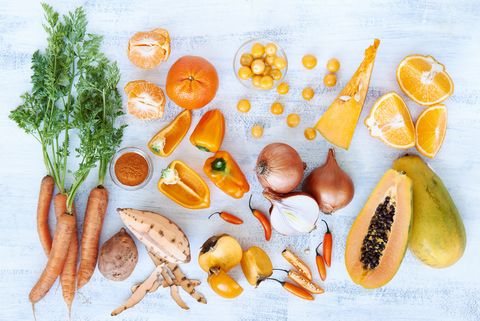
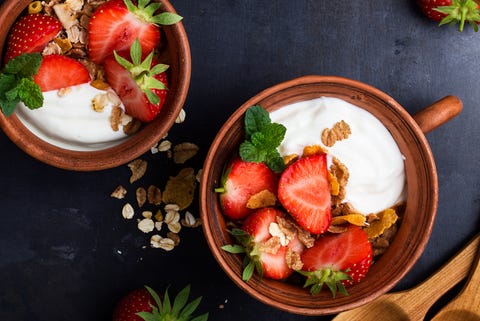
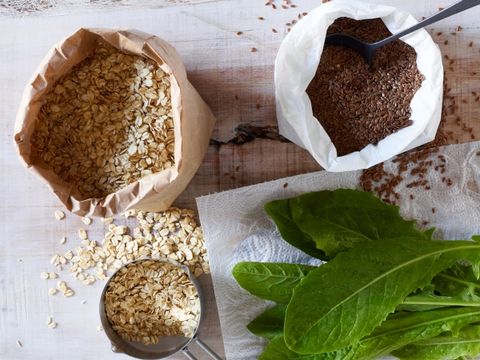
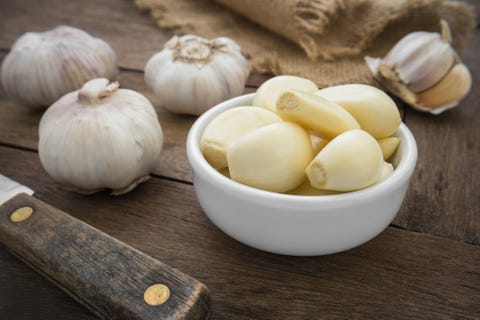
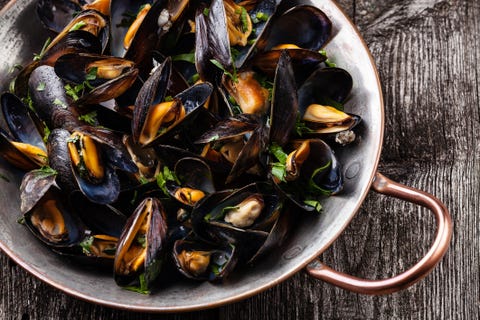
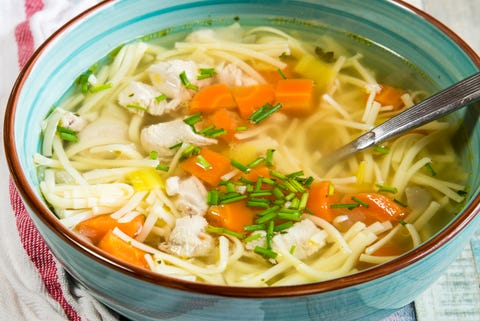

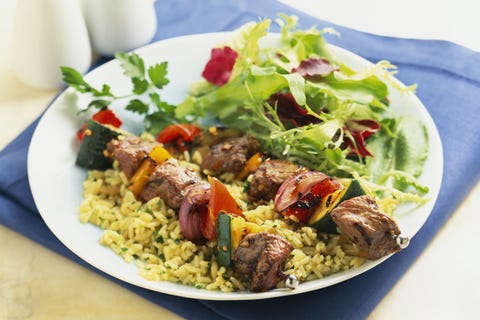
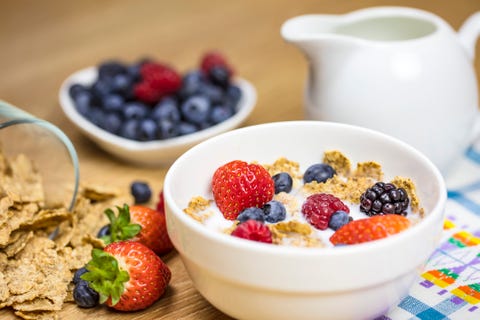
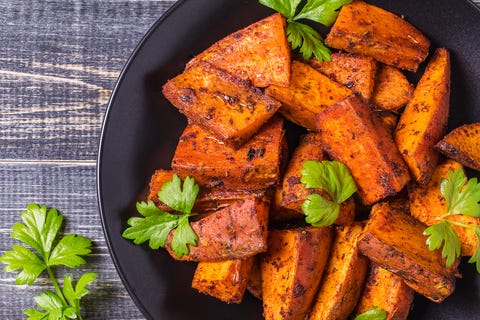
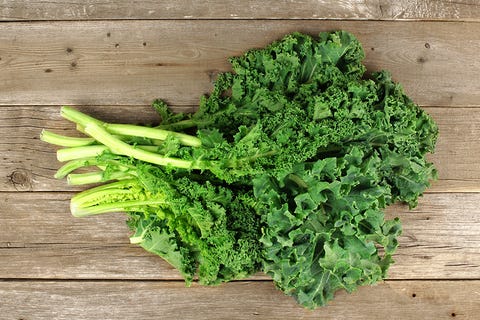
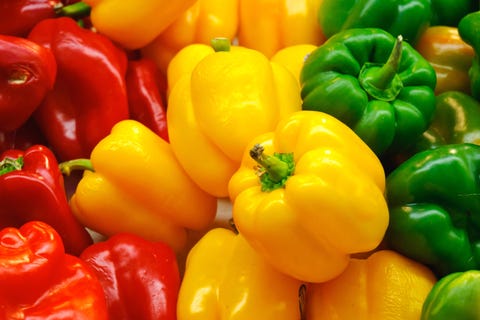

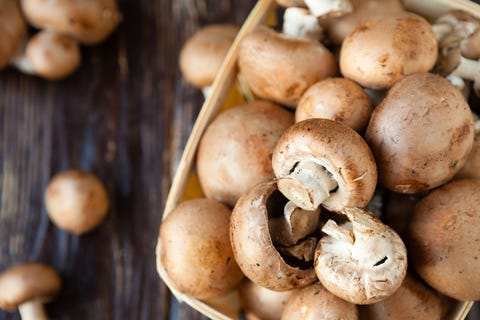
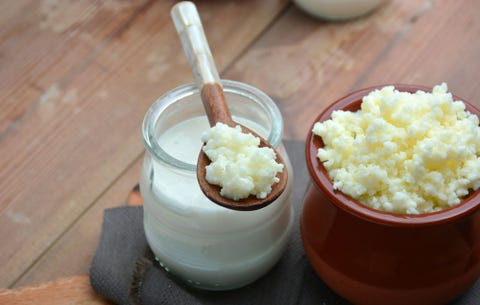

মন্তব্যসমূহ
একটি মন্তব্য পোস্ট করুন